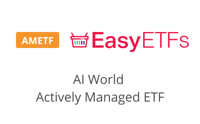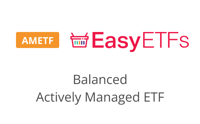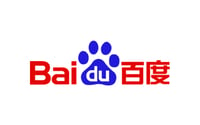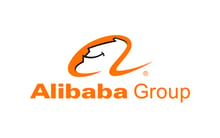Can Tencent Win China’s AI Battle?
Summary
- AI is fueling Tencent’s growth across WeChat, gaming, and cloud computing.
- U.S. chip sanctions are slowing China’s AI expansion, limiting Tencent’s access to Nvidia’s top-tier GPUs
- Tencent is tripling its AI-related CapEx in 2024, aiming to scale enterprise AI solutions and strengthen its competitive position against Alibaba and Baidu.
China’s artificial intelligence (AI) industry is undergoing a major transformation, with companies like Tencent, Alibaba, Baidu, and ByteDance racing to establish dominance. Tencent, has made significant investments in AI-driven cloud computing, large language models (LLMs), and AI-powered content creation.
While AI presents a major growth opportunity, challenges such as U.S. semiconductor sanctions, regulatory constraints, and monetization struggles threaten to slow progress. At Easy Asset Management, we actively monitor developments in this space to inform the strategy behind our EasyETFs AI World Actively Managed ETF and our positions in Prosus and Naspers within the Balanced AMETF EasyETFs Balanced Actively Managed ETF.
At Easy Asset Management, we actively monitor developments in this space to inform the strategy behind our EasyETFs AI World Actively Managed ETF and our positions in Prosus and Naspers within the Balanced AMETF EasyETFs Balanced Actively Managed ETF. Tencent’s AI Strategy: Expanding Across Sectors
Tencent’s AI Strategy: Expanding Across Sectors
Tencent has focused heavily on AI-powered chatbots and search technologies as President Martin Lau explains, the company is “investing in AI as both a growth multiplier for our existing businesses and as a new growth driver.” Its HunYuan large language model has rapidly climbed China’s AI rankings, and its Yuanbao AI Assistant is now among the top three AI-native mobile apps.
Additionally, Tencent has integrated AI into WeChat’s search engine, which now processes over 90% of question-based queries using AI-powered responses. WeChat, often referred to as an “everything app,” combines messaging, payments, shopping, social media, and various services into a single platform. These AI developments position Tencent in direct competition with other major Chinese tech players:
- Baidu (a search and AI technology leader, known for its ERNIE Bot)

- Alibaba (an e-commerce and cloud computing giant with its Tongyi Qianwen AI model)

- ByteDance (a content and social media powerhouse behind TikTok, which uses its Doubao AI model for chatbots and generative content),
- Deepseek (an AI startup focused on large language models, best known for its adaptive R-1 model).
AI is also reshaping Tencent’s gaming and digital content businesses. In-game chatbots (such as AI-controlled characters that adapt to player behavior and enhance immersion) and automated content generation (used to create dynamic storylines, assets, and dialogue in popular Tencent games) are enriching gameplay experiences.
As martin Lau said “We leveraged AI in games to optimize matching experience, improve game balance and facilitate AI coaching for new players, empowering our evergreen games strategy”
AI-driven ad targeting through Tencent Marketing Solutions has boosted marketing services revenue by 20%. AI is also being deployed in video, music, and creative content across platforms like Tencent Video and QQ Music, helping the company scale production while maintaining high levels of user engagement.
Tencent has also expanded AI into enterprise and cloud computing. AI-powered WeCom, Tencent Docs, and security solutions are designed to enhance workplace efficiency, while Tencent Cloud is scaling AI-driven data processing. However, management highlighted that the increased internal use of GPUs for AI applications has restricted their availability for external customers, thereby limiting cloud revenue growth.
Tencent’s AI strategy also extends into robotics research through its Robotics X Lab, which focuses on developing intelligent, agile machines powered by cutting-edge AI. The lab works on areas such as motion control, human-robot interaction, and reinforcement learning, creating systems like quadruped robots and home-assistance bots. These projects aim to integrate robotics into real-world environments in the future.
Challenges Facing Tencent and China’s AI Industry
One of the biggest roadblocks to Tencent’s AI ambitions is the U.S. semiconductor ban, which has restricted China’s access to high-performance AI chips such as Nvidia’s A100 and H100 GPUs. These chips are essential for training large-scale AI models, and their absence has slowed the expansion of AI and AI cloud services. While Tencent and other Chinese firms are investing in domestic AI chip development, local alternatives like Huawei’s Ascend chips remain far behind in performance.
AI has had a profound impact on Tencent’s internal operations. However, due to limited chip availability, the company has only been able to roll out these capabilities to third parties in a very limited way. This constraint has restricted Tencent’s ability to offer AI services externally, such as through Tencent Clou, slowing potential revenue growth in this segment despite strong internal advancements. While Chinese demand for AI is robust, scalability to the same degree as western AI models remains challenging due to the lack of access to top grade AI hardware and infrastructure.
Regulatory constraints also pose a challenge. The Cyberspace Administration of China (CAC) has imposed strict rules requiring censorship and compliance measures for AI models. These regulations ensure AI systems align with state policies, but they restrict open-ended AI development compared to Western counterparts like OpenAI’s GPT-4. Tencent and its peers must navigate compliance-heavy AI deployments, which can delay product rollouts and limit creative AI applications.
In addition to U.S. sanctions and regulations, Tencent faces intense domestic competition. Alibaba, Baidu, and ByteDance are all investing aggressively in AI, vying for DeepSeek’s spot as the top dog of Chinese AI chatbots. Alibaba, in particular, is set to outspend Tencent in AI infrastructure and maintain its position as the leader in AI-driven cloud computing—forcing Tencent to play catch-up. As a result, Alibaba Cloud is growing rapidly, further widening the gap between the two tech giants.
The Future of Tencent’s AI Strategy
Despite these challenges, Tencent remains committed to AI innovation. The company has more than tripled its AI-related capital expenditures (CapEx) in 2024, investing heavily in GPU infrastructure, AI model development, and cloud expansion. While free cash flow (FCF) and shareholder returns may be affected in the short term, Tencent believes these investments will pay off in the long run.
Looking ahead, Tencent is likely to prioritize AI for enterprise applications, where demand for AI-driven business services, security, and cloud computing is growing. Additionally, China’s government may provide further policy support for AI leaders like Tencent, ensuring long-term sustainability despite geopolitical challenges.
Ultimately, Tencent’s success in AI will depend on navigating regulatory barriers, improving monetization strategies, and overcoming infrastructure constraints. If the company can successfully scale its AI efforts, it has the potential to become China’s leading AI powerhouse and shape the future of AI-driven applications across industries.
Discover more insights in our blogs
Any opinions, news, research, reports, analyses, prices, or other information contained within this research is provided by an employee of EasyEquities an authorised FSP (FSP no 22588) as general market commentary and does not constitute investment advice for the purposes of the Financial Advisory and Intermediary Services Act, 2002. First World Trader (Pty) Ltd t/a EasyEquities (“EasyEquities”) does not warrant the correctness, accuracy, timeliness, reliability or completeness of any information (i) contained within this research and (ii) received from third party data providers. You must rely solely upon your own judgment in all aspects of your investment and/or trading decisions and all investments and/or trades are made at your own risk. EasyEquities (including any of their employees) will not accept any liability for any direct or indirect loss or damage, including without limitation, any loss of profit, which may arise directly or indirectly from use of or reliance on the market commentary. The content contained within is subject to change at any time without notice.
Any opinions, news, research, reports, analyses, prices, or other information contained within this research is provided by an employee of EasyEquities an authorised FSP (FSP no 22588) as general market commentary and does not constitute investment advice for the purposes of the Financial Advisory and Intermediary Services Act, 2002. First World Trader (Pty) Ltd t/a EasyEquities (“EasyEquities”) does not warrant the correctness, accuracy, timeliness, reliability or completeness of any information (i) contained within this research and (ii) received from third party data providers. You must rely solely upon your own judgment in all aspects of your investment and/or trading decisions and all investments and/or trades are made at your own risk. EasyEquities (including any of their employees) will not accept any liability for any direct or indirect loss or damage, including without limitation, any loss of profit, which may arise directly or indirectly from use of or reliance on the market commentary. The content contained within is subject to change at any time without notice.
Subscribe to our Blog
Search all articles
Posts by topic
- Market News & Events
- Easy Community
- Education
- Dividends Update
- Exchange Traded Funds (ETFs)
- Managed Bundles
- Property Investing
- USD Wallet
- Retirement Annuity (RA)
- Cryptocurrency
- Tax Free Savings Account (TFSA)
- International Investing
- Unit Trusts
- New to Investing
- Artificial Intelligence
- EasyProtect
- Shares
- EasyCredit
- Government Bonds
- New Listings
Let Us Help You, Help Yourself
From how-to’s to whos-whos you’ll find a bunch of interesting and helpful stuff in our collection of videos. Our knowledge base is jam packed with answers to all the questions you can think of.








